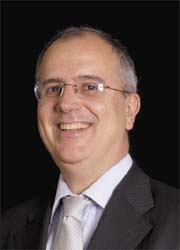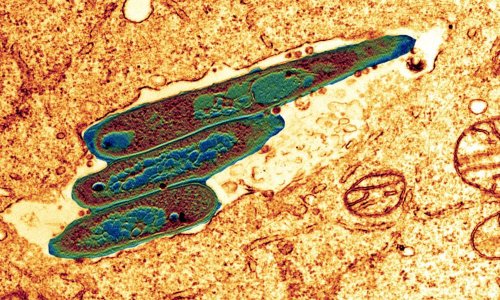European Respiratory Society Congress
2-6 September 2006
`Respiratory diseases are still a huge burden for our countries,´ Giovanni Viegi, President of the European Respiratory Society pointed out at the congress.

I am very pleased to introduce you to the European Respiratory Society (ERS) in Munich, Germany. This summer Germany hosted the football World Cup. Likewise, it is going to host a worldwide event in respiratory medicine. There should be a link between the two events! Perhaps it is the following message that makes us think positively. To play football at a high-quality level one needs very good lung health, which can be obtained by prevention (e.g. never smoking) and by the best disease treatment (e.g. asthma control).
Welcoming attendees to the 16th Annual Congress ERS , to be held in Munich, Germany, ERS President Giovanni Viegi pointed out that the event celebrates a 40th and 25th anniversary related to ERS predecessors. ‘In 1966, the European Society for Clinical Respiratory Pathophysiology (SEPCR) was founded in Prague, whilst in 1981 the European Society of Pneumology (SEP) was founded in Italy. The two merged in the UK in 1990 to give birth to the ERS.’
Although the ERS is still predominately based in Europe, its members hail from over 100 countries. ‘Respiratory diseases are still a huge burden for our countries,’ he points out. ‘As reported in the ERS European Lung White Book, the World Health Organization estimates that in 2020, twelve million people will die annually due to lung diseases. This corresponds to about one in every six deaths. Respiratory physicians, scientists and allied professionals have a huge challenge in front of them, to increase their efforts in order to expand the awareness of the needs for more research and prevention, better treatment and better rehabilitation, on behalf of respiratory patients.’
The event, prepared by the president and congress chairs Ulrich Costabel and Karl Haeussinger, as well as the ERS scientific assemblies and staff., will be attended by members and delegates from over a hundred countries. They will hear of new discoveries in basic sciences; appreciate the usefulness of guidelines and standard protocols in clinical medicine,’ Giovanni Viegi points out. They will also learn about the effects of risk factors in epidemiological surveys – and much else.
30.08.2006





